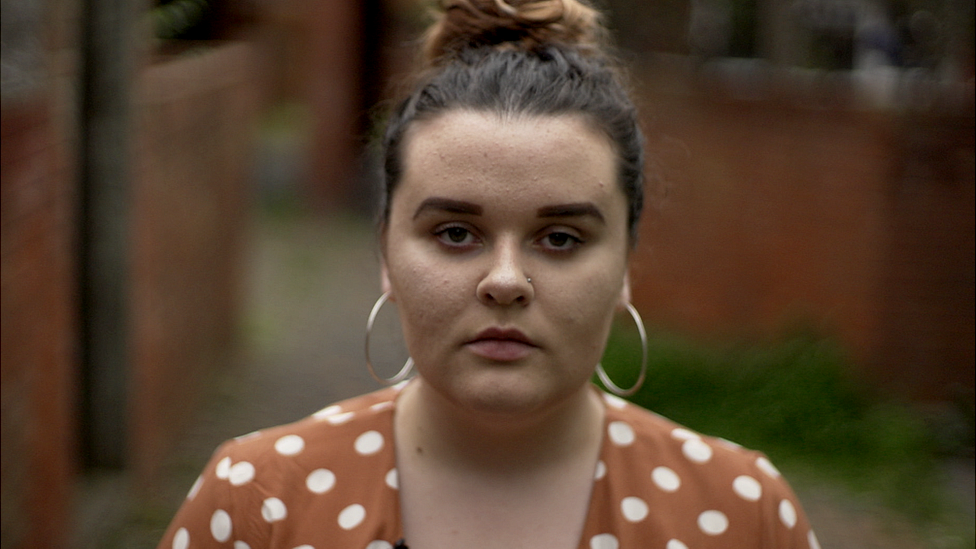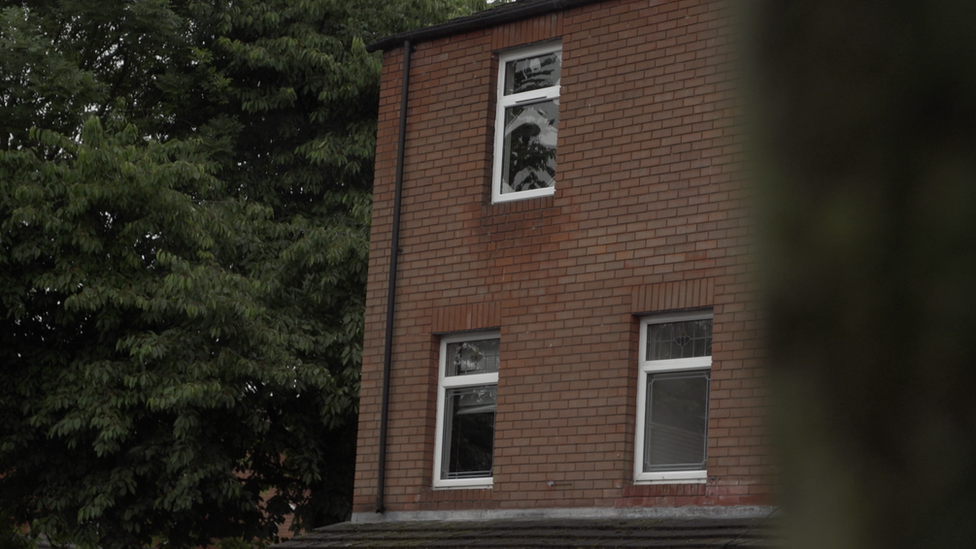Government 'to ban' placing children in unregulated homes
- Published
BBC News revealed that 14 council investigations have been launched into "organised and complex abuse" in unregulated homes
The government is set to ban the placement of children in care under the age of 16 in unregulated homes in England, following a BBC investigation.
Education Secretary Gavin Williamson said "the BBC highlighted something that just needed to be changed".
A consultation also proposes greater powers for Ofsted to tackle unregistered children's homes.
Last year, BBC News revealed that children as young as 11 were being housed in these homes.
Unregulated homes, often known as semi-independent or supported accommodation, are not inspected by a regulator in England or Wales.
Chris Wild tells Newsnight 'there's something wrong' with the care system
Councils have a duty to place children in care in homes, and typically house them in registered children's homes or with foster carers.
But increasingly, local authorities are placing children in care under the age of 16 in unregulated homes which are only qualified to offer support and not full-time care.
'I wouldn't want this for my children'
Ofsted says it is illegal to provide care in an unregulated home but BBC News found a loophole is being used that allows children to be placed in these homes while on holiday.
One 15-year-old girl was placed in eight different unregulated placements in a year.
Have you lived in this type of home? Email haveyoursay@bbc.co.uk, external
Now the government says it wants to ban the placement of under-16s in these homes and has launched a consultation.
"Your reports expose that there are children being placed in that type of care. That isn't something that we are going to allow to continue," Mr Williamson said.
"I think anyone with compassion in their heart realises [it's] not right... I wouldn't want this for my children or anyone else's."
Mr Williamson added that councils will have their children's services departments taken over if they continue to place children in unregulated homes.
"If a local authority thinks they can continue to place children in those types of environment, quite simply they will have those powers withdrawn in order to be able to continue to look after children's services."
In 2019, following a series of reports on BBC Newsnight, the children's minister at the time, Nadhim Zahawi, said that full regulation would be a "knee-jerk reaction".
The Local Government Association said it was "vital" the government uses its consultation to understand the pressures on accommodation for children in care.
"The increasing use of unregulated settings is being driven by shortfalls in places in registered children's homes and other settings, particularly for young people with more complex needs," it said.
The government's consultation also plans to provide additional powers to Ofsted - the regulator of registered children's homes - to intervene when they suspect a setting is being used as an unregistered home.
One young person described being taken from a care home and then stripped, beaten and stabbed
Ofsted already has the power to prosecute providers, but the BBC has learned there have been no prosecutions following 150 investigations.
Only around 100 of the 6,000 residents in unregulated homes are under the age of 16. More typically, 16 and 17-year-olds are placed in such settings.
Last year, as part of a series of BBC News investigations into unregulated homes, it was revealed that young people faced "organised abuse" while living in these placements.
One 16-year-old girl had been trafficked from her home and abused, while another boy, also 16, said the home he stayed in was just a "drug deal house".
Ed Nixon of the Independent Children's Homes Association said distinguishing between children under the age of 16 and those under 18 is "entirely misguided."
"We are prepared to treat 16-year-old child care leavers as if they are ready to live independently with very limited support", it said.
"There must be no question of regulating establishments that provide accommodation for both children and adults which can commonly be the case in currently unregulated accommodation."
The government's consultation says it also plans to introduce compulsory national standards to improve conditions for young people in these homes.
- Published18 September 2019

- Published19 September 2019
